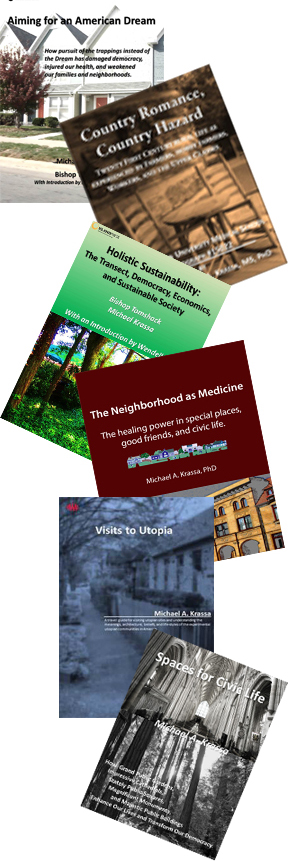Information Links
In the News: Recent articles by me or about my work.
-
Psychology Today. Article with Professor Teresa
Krassa discussing how health and happiness are connected through
politics.
-
Psychology Today,
Article with Professor Benjamin Radcliff discussing an
overlooked reason why American citizens are not among the
happiest in the world. Indeed, we now rank as the 23rd happiest
nation. There are many reasons for this, many of which we've
addressed in other works. One often forgotten reason, however,
is that America is a presidential system, and the citizens of
nations with presidents are less happy with their lives and
their governments than are people living is parliamentary
systems. While both have flaws, the presidential systems tend to
alienate more people more often.
-
TO BHMA Interview with
Τάνια Μποζανίνου for TO BHMA,
Οι πρώτες
100 ημέρες του νέου πλανητάρχη,
Nov 20, 2016.
-
Interview with Ritchie Bernardo of
WalletHub on the 2016 US primaries.
-
US News and World Report,
Reprinted our piece on direct democracy and the initiative. Yes, it is similar to the one listed below; but I include it here for vanity because, after all, it's US News and World Report. Edited and expanded versions also were printed in Psychology Today and Yes! magazine.Edited and expanded versions of this piece have appeared in Psychology Today and Yes! magazine, in addition to outlets like SwissInfo, Power 2 People, and The Turkish Sun, among other places. For something that nobody read, it got a lot of reprints! Who'd have guessed?
-
The Conversation.
Direct democracy may be the key to happier American democracy. With Ben Radcliff. Discusses how states that use initiative, referndum, and recall have citizens who are happier with their government and laws and policies that benefit citizen life satisfaction.
-
Psychology Today,
"What's better at creating happiness-- the people or the market?" Cowritten with Ben Radcliff, this is just a reformulation of our piece in "The Conversation" and "The Washington Post," both listed below.
-
Newsweek,
"What makes us happier? government or the free market? Big data from around the world points to a single, clear answer to the perennial question." With Benjamin Radcliff, Sept 11, 2015.
-
The Conversation. "Profs: Small government may be bad for the
pursuit of happiness." With Benjamin Radcliff, Sept. 7, 2015.
-
Peoria Journal Star, Op-Ed
Online on 11/6/2014 (print on Sunday, Nov 9, 2014), argues that the minimum wage helps the middle class too.
-
Talking Points Memo OpEd.
October 21, 2014. Ben Radcliff and I show that a rising minimum wage lifts all boats, helping all people in a nation thrive, not just those receiving the minimum wage. The minimum wage has a huge impact on the middle class too.
-
Washington Post OpEd
Ben Radcliff and I wrote a column in the Washington Post (May 15, 2014) about how the minimum wage influences the well being of a nation's citizens entitled Does a higher minimum wage make people happier? In short we ask, even if there are economic inefficiences in setting a minimum wage, should a democracy of the people enact one if it makes the entire society better off?
-
SueThy Neighbor
Sue Thy Neighbor is a piece by Julie Halpert in the Ann Arbor Observer that mentions Michael Krassa's work and an observation from one of his courses.
Links about my employers.
Things that you should know.
